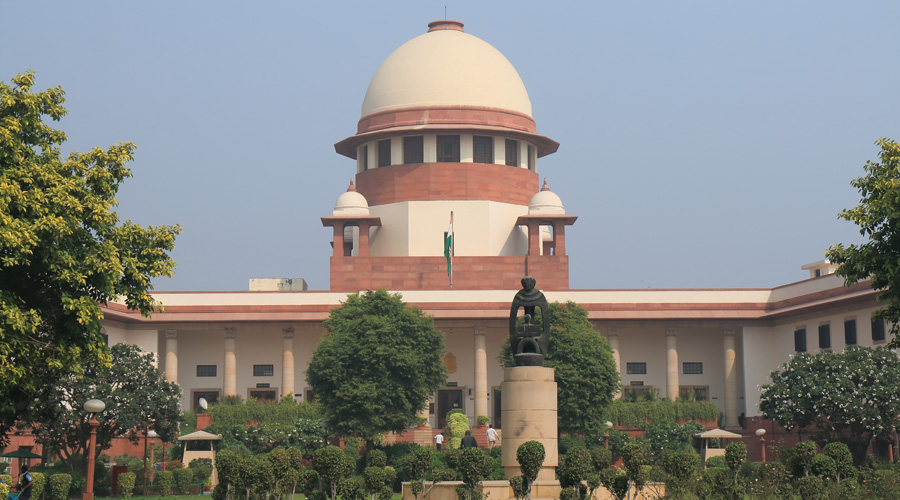The Supreme Court on Monday expressed surprise at the Centre’s failure to file its reply even after being served with a notice on Congress leader Jairam Ramesh’s petition challenging amendments to the Right to Information Act that, he alleges, have diluted the powers of the Information Commission.
“The notice was issued in January 2020. It has been a year since then. How is it that you have not filed a reply yet?” Justice D.Y. Chandrachud, who headed the bench, asked the Centre’s counsel Kanu Agarwal during a hearing.
Justice M.R. Shah, the other judge on the bench, asked: “What is wrong with you? It’s a very important matter.”
The counsel pleaded for a two-week adjournment as solicitor-general Tushar Mehta was not available. The court then adjourned the matter by two weeks.
On January 31 last year, the court had sought a response within four weeks on Ramesh’s petition challenging amendments to the Right to Information (Amendment) Act, 2019, that allegedly vested the Centre with absolute powers to prescribe the tenure and salaries of central information commissioners/state information commissioners.
“Such an amendment seriously curtails the independence of the institutions created under the transparency law,” the petition filed through advocate Sunil Fernandez said.
Ramesh’s petition has assailed the following amended sections;
⚫ Sections 2(a) and 2(b) of the Amendment Act alter the erstwhile fixed tenure of five years of the central information commissioners to a tenure to be prescribed by the central government.
⚫ Similarly, Sections 3(a) and 3(b) of the Amendment Act alter the erstwhile fixed tenure of five years of the state information commissioners to a tenure to be prescribed by the central government.
⚫ Section 2(c) of the Amendment Act grants absolute power to the central government to prescribe the salaries, allowances, and terms and conditions of service of the central information commissioners that in the pre-amended act was fixed to be on a par with election commissioners under Section 13(5) of the RTI Act.
⚫ Similarly, the central government under Section 3(c) of the Amendment Act is also granted with absolute powers to prescribe the salaries, allowances and terms and conditions of the state information commissioners that were previously fixed to be on a par with an election commissioner for chief state information commissioners and on a par with the chief secretary of a state for state information commissioners under Section 16(5) of the RTI Act.
⚫ Further, Section 4 of the Amendment Act explicitly grants rule-making power to the government over fixing the tenure, salaries and service conditions of information commissioners under Section 27 of the pre-amended act.
“Further, the decision of the central government is binding upon the information commissioners. This allows unbridled and uncanalised discretionary power to the central government that jeopardises the independence of information commissioners,” the petition said.











